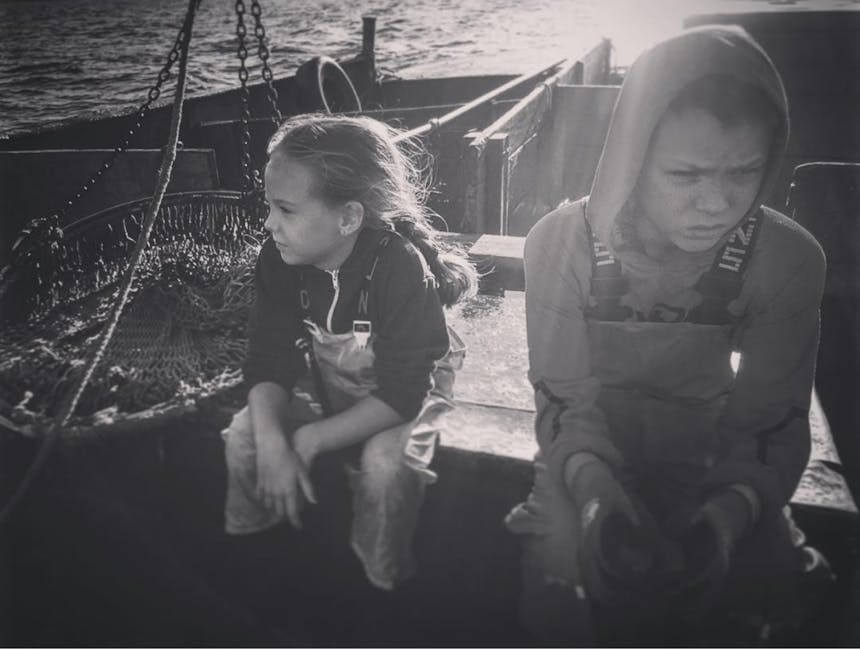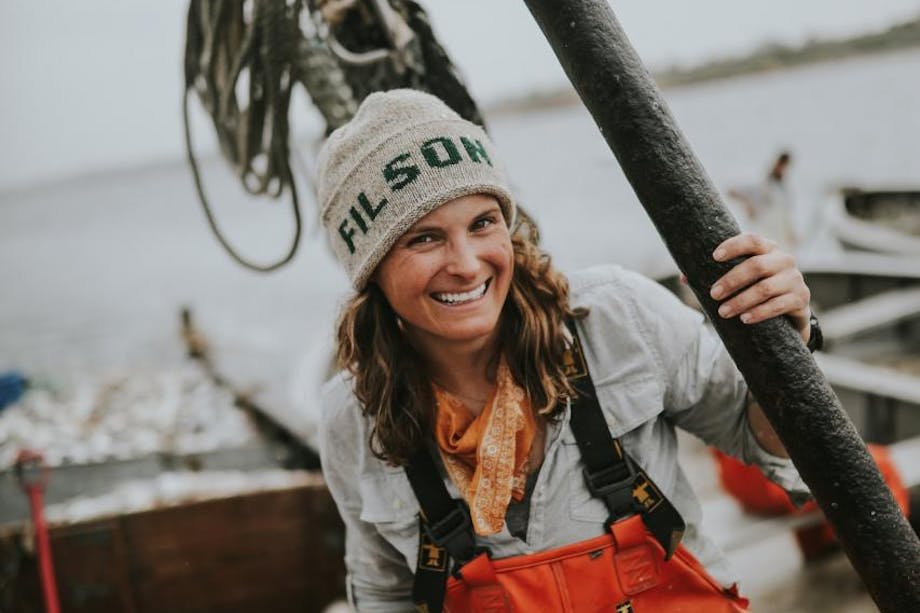Fishing isn’t just a passion for Corey Forrest. It’s in her blood, a way of life passed down from her grandfather on the family dock in Rhode Island. Fishing goes back even further on her mother’s side there, since the 1800s. “Everyone’s made a living off the water in some way,” she says.
Now, with her son and daughter, Corey’s family is the last trap fishing family left on this stretch of the Atlantic coastline. Trap fishing isn’t known for its ease. It’s hard work, with nets that constantly need mending and traps–some larger than football fields and secured with 900-pound anchors–that must be hauled in and checked. But it’s a sustainable method. Fish swim into the trap alive, and when the traps are hauled up, Corey can throw back any fish over quota, and they swim away. She calls it a “floating aquarium.”na of 1970 had never seen anything like them.


Corey wasn’t drawn to the family business right away. “I was the late bloomer in the family,” she says. “My brothers were always going out with my dad, and I was off doing piano lessons and gymnastics.”
Plus, there were never any women at the docks. “I would go down there with my mom, but it was an intimidating place. Those guys are rough and gruff. It never even crossed my mind that I would want to do it.”
When she was nineteen and home from college for the summer, she needed a job. Her father asked her to come work for the company learning to mend nets. There were only two other men out there and they needed the help. What’s more, he said, those men were in their seventies, and there was no one coming after them who wanted to learn the craft. Corey said yes–and then she fell in love with it.
"We were in this wide open field at sunrise mending nets, and I was listening to their fish stories, and wondering why I hadn’t done this sooner."
The following summer, when Corey stopped by the docks, her father asked her to come out on the boat; he was short-handed. “When I was out on the water, I thought, Oh my god. I can’t believe I’ve been missing this my whole life.”
It’s rare for women to feel welcomed in the fishing industry. Corey says there are still those who believe women are bad luck on boats. “But the old-timers who were still around showed me this grandfatherly kind of protection, and taught me the ropes. I don’t think that’s typical. I was very lucky.”
Corey introduced her children to fishing from the time they were babies, carrying them on her back to work. As a professional fisherwoman, Corey already had the patience and endurance–and the understanding that in rough times, the tides will always turn, that motherhood called for. Although Corey never pushed it, both her son and daughter chose to work for the business starting at fourteen years.
Today though, twenty-eight years after Corey started, she’s facing the prospect of a dying craft. Trap fishing requires a large crew, but fish prices haven’t gone up since her grandfather’s time, making it almost impossible to pay good wages. “It’s hard and sad to think about wrapping it up. I’ve never done anything else. I’ve gone through a grieving process.”
Last year, when boat engine issues kept her from running the trap-fishing season, she joined a crew offshore gillnetting. “This is a whole different adventure. But I’m still on the water. I’m not ready to stop fishing yet.”
Even if Corey sunsets the family business, she knows she left a legacy for her children: teaching them that there’s no substitute for hard work, and to respect and appreciate for the sea and everything in it.

Corey Forrest @fishandforrest








